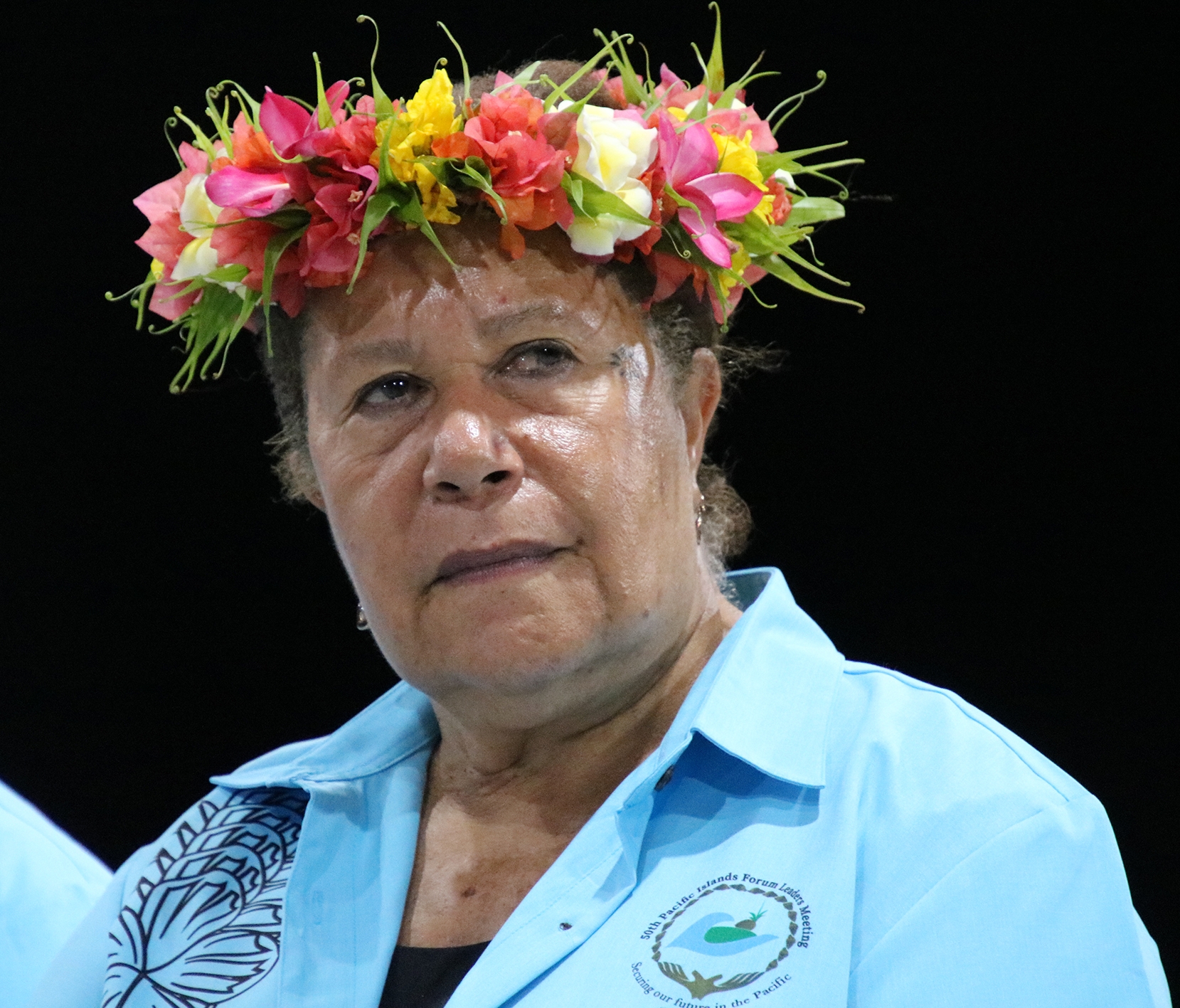The Pacific today faces three crises: a health crisis, an economic crisis and the ongoing climate crisis, and Pacific Islands Forum Economic Ministers will discuss all three when they meet (virtually) next week.
As the COVID-19 pandemic has unfolded the scale of the economic impact on Pacific people and communities has become clearer – and Pacific Islands Forum Secretary General, Dame Meg Taylor says for some it is ‘catastrophic’.
Increased hunger, malnutrition and poverty is being reported by civil society organisations. Job losses, business failures and plummeting remittances are telling and industries such as the tourism sector face the prospect of decades in recovery. Governments are scrambling to put in place safety nets and cope with staggeringly bad COVID-related economic forecasts.
Dame Meg says it is time to think out of the box and act regionally.
She understands the tendency by Pacific countries to turn inwards during the pandemic.
“It is only natural when something like this happens,” she told reporters ahead of the Forum Economic Ministers’ meeting.
“We …look at what is happening to myself, what is happening to my family, what is happening to my friends, what is happening in my community, what is happening in my country.
Dame Meg Taylor says the ministers will focus on economic priorities to contain the spread of COVID-19 and recover from the pandemic to build “a strong platform for economic stability and resilience in the long term.”
She stressed the need for new and innovative approaches to development challenges based on self-reliance, pointing to the Pacific Humanitarian Pathway as an example of effective Pacific collective action.
“It is the only region in the world that has done this. And why is this important? Because it is the political space, making sure that the technical assistance can get in, medical assistance can get in, we can ship cargo and customs can be adhered to, that we can repatriate citizens, we can land aircraft, immigration facilities are all in place, and trying to make this work is no mean feat, as you will understand.”
Dame Meg is encouraging Forum members to look beyond their national boundaries, and for development partners to think beyond bilateralism, in order to facilitate “better and deeper coordination and collaboration.”
“It is, I think it is honest for me to say, that the development partners have really approached COVID with a very much bi-lateral approach. And we have watched this, and we have watched the geo-strategic issues play out.”
Dame Meg says the Forum and other regional organisations are also looking at digitalisation as a priority; to survey what infrastructure is in place or coming online plus prices and accessibility, and then explore how it can support the digital economy, health, education and other development goals.
“ I think that it is an opportunity that we need to look at. I know that development banks like the Asian Infrastructure Investment Bank (AIIB) are looking at this through Southeast Asia and other countries. We have asked them to have a conversation with us in terms of what can be done in this region.
“But everything costs money and everything that we get from banks, unless it is coming from the International Development Assistance in the World Bank, everything will one day have to be paid back. This is the big issue for us in the region on how we are going to be able to service this debt over time.”
A paper on the Pacific’s own climate-infrastructure fund, the Pacific Resilience Facility, —with added content on the COVID pandemic—is also going to ministers. The Facility aims to raise US$1.5 billion and fund small projects through the interest generated.
“It is really important that we start thinking of how we can help ourselves, “ Dame Meg says.
“I think that there is a huge tendency in the International Development space every document that you pick up is about how much the Pacific relies on everybody else to do things for them.
“You know I am really sick of that! I’m sure that a lot of you who have worked around this are also tired of it too. It is not as if we are people who do not know how to look after ourselves but wherever they have been good ideas put forward, it is amazing how people think that ‘oh why did you think of that?’ And this is exactly the kind of resistance that we got on this from some of the development banks; we are doing that so why would you want to do it?
“We have got to start helping our countries get systems in place in countries where we can maximise funding that comes in so that countries can help themselves.”
Dame Meg acknowledges that thinking outside the box and building on the regional identity of the ‘Blue Pacific’ continent – launched by leaders in 2017 – is not always easy.
Sharing of experiences of individuals and of countries is important.
“I hope that this is what Forum Economic Ministers will do – to discuss and share their experiences and support each other,” she said.
Forum Economic officials meet this week, with the Ministerial due to open on Tuesday next week.
